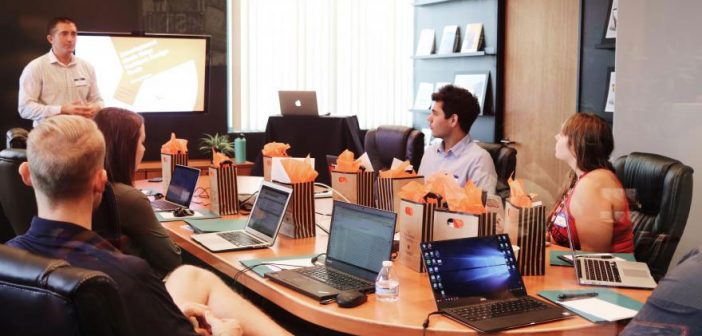Swept up in a wave of digital transformation, today’s marketers are being asked to de-silo enterprise data and revolutionize the customer journey. They are tasked with tearing down walls between departments in pursuit of the ultimate goal of assuming full ownership and responsibility for their data. The problem is, marketers can’t do this alone. They need talented engineers – specifically, “business-curious” engineers – who can help them solve unique problems with purpose-built software tools to enable the speed-to-market process that is so critical in today’s rapidly evolving technology landscape. This is a challenge all marketers face, and the stakes are high. Many will struggle to meet it, some will fail, and a CMO job or two will likely be lost in the process.
The marketers most likely to succeed are those willing to broaden their approach to hiring tech employees. Conventional software engineers still have a role to play in areas such as developing and maintaining software for scale but marketers must also seek out business-curious engineers to add flexibility to their engineering toolkit. These are well-rounded candidates with the desire and capability to work closely with other people, to understand open-ended business problems, and to work backward from business goals and key performance indicators. The challenges lie in finding software engineers with these unique “soft” skills and convincing them that a marketing organization can provide the kind of atmosphere that will not only challenge them technically but also put these skills to the best use and advance their careers.
This type of engineer represents a radical departure from the conventional model of interaction between engineering and marketing teams. Typically, when marketing requests time-sensitive website updates or the creation and implementation of a new tagging architecture that solves for future campaign initiatives, the request gets added to an engineer’s queue. However, the engineering team has their own set of priorities that could cause delays, whether it’s pushing the latest hotfix to production or deploying the next version of a product.
The problem is further magnified with more technical execution, e.g., creating a tailored solution to optimize digital workflows across their marketing platforms via API.
So, marketers turn to outsourced providers for these needs, but that’s a patchwork solution at best. Its weaknesses are often exposed when enterprises decide to in-house their ad tech operations and realize they still have an unmet need. Depending on the complex needs of the marketer, their options are buying software and/or services from a consulting firm, which can be expensive, or creating a new in-house position for a business-curious engineer.
Another factor driving the need for business-curious engineers is the anticipated proliferation of data privacy and protection regulations, such as the European Union’s General Data Protection Regulation and California’s Consumer Privacy Act from data files, leaving marketers to ponder how they can build customer attribution models that still work for their business. An enterprise may be awash in data, but if the company doesn’t have an engineer who comprehends its overall marketing/advertising vision and technology’s role in realizing it, that data is virtually worthless. Data scientists are exceptionally useful here, however, most marketers don’t have a dedicated person for this either. A business-curious engineer fills that gap and can function as a sort of technical liaison between the hands-on-the-keyboard team and the boots-on-the-ground folks doing who need to leverage reporting and attribution data.
Business-curious engineers exist in the wild, but you can also build them from scratch. The richest source of potential candidates is boot camp-type coding schools. Originally concentrated in Silicon Valley, the schools have now spread to most major cities. (You can find descriptions and rankings of the top 50 schools here). Many of the students at these schools come from other professions and already possess valuable soft skills.
A stumbling block marketing organizations may face in recruiting these candidates is that some schools, especially in Silicon Valley, highlight searching for roles with a purely “Software Engineering” title. It’s important to emphasize to these candidates that coding skill is an important requirement of the job for which you are recruiting them, but that it’s not enough. This position also requires the kind of soft skills they may have developed in their earlier careers. Stress that this job requires an entrepreneurial spirit and the desire to solve very challenging problems on a daily basis. It’s also one that can open up new career path opportunities and serve as a stepping stone to discovering an engineer’s true potential.
Growing your own business-curious engineers can be a more attractive option. It’s much harder to teach an engineer’s soft skills (how to interact, when to promote the product, when to listen) than it is to teach engineering to someone who already possesses those skills. Bootcamp coding programs are challenging, but the type of engineering needed for ad tech can be taught in a relatively short period of time. Providing an existing team member who already has the right set of soft skills with the appropriate technical training often makes the most sense.
Business-curious engineers can provide multiple benefits to marketing organizations, but the most important one is the ability to move quickly. Ad tech changes so radically and so quickly. If you don’t have the engineering capabilities to rapidly deploy tags and to build custom tools to solve for your unique business problems, you’re already falling behind. BCEs can provide value in other ways, too, such as by automating marketing-specific processes and workflows. BCEs can build tools that save the account management organization the equivalent of 10,000 hours of full-time employment costs. Finally, BCEs enable account managers to become more strategic, to remove their hands from the keyboard and spend more time thinking about how to optimize their campaigns.
–
This article first appeared in www.smartbrief.com
Seeking to build and grow your brand using the force of consumer insight, strategic foresight, creative disruption and technology prowess? Talk to us at +9714 3867728 or mail: info@groupisd.com or visit www.groupisd.com




